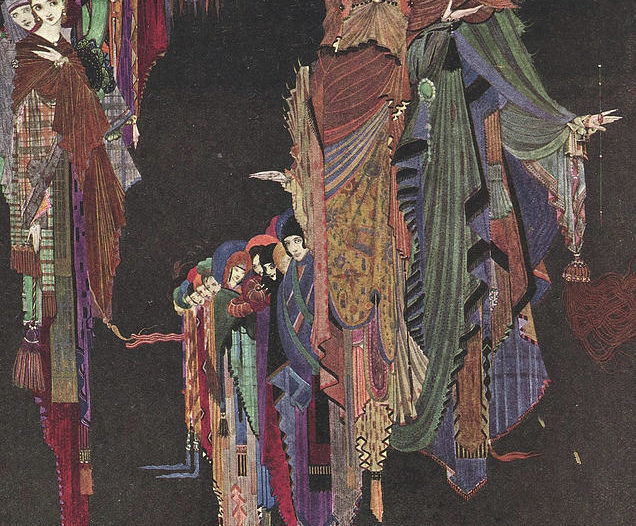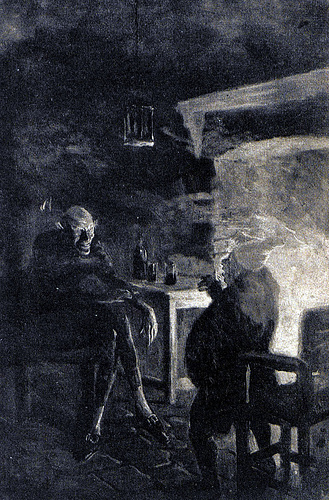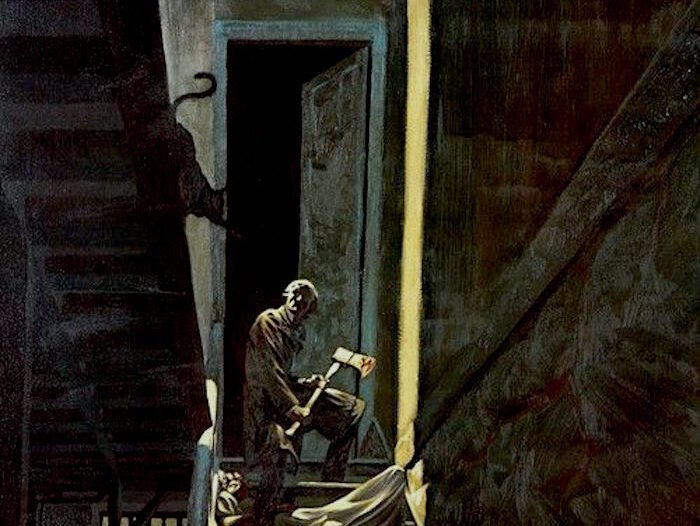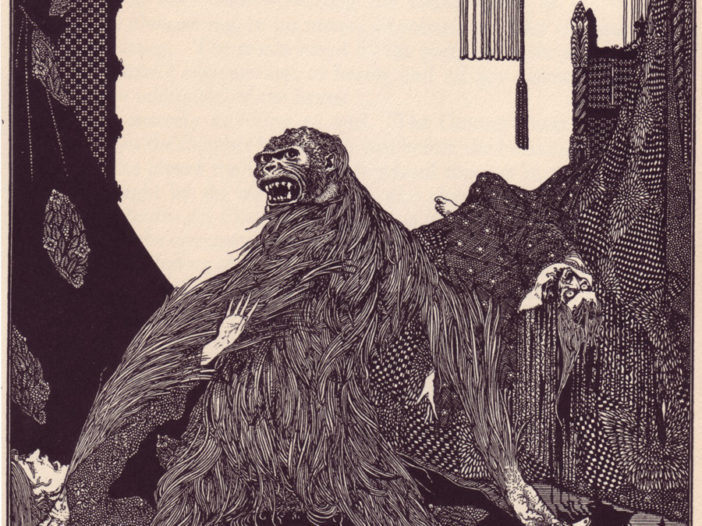The Colloquy Of Monos And Una
UNA. “Born again?”
MONOS. Yes, fairest and best beloved Una, “born again.” These were the words upon whose mystical meaning I had so long pondered, rejecting the explanations of the priesthood, until Death himself resolved for me the secret.
UNA. Death!
MONOS. How strangely, sweet Una, you echo my words! I observe, too, a vacillation in your step — a joyous inquietude in your eyes. You are confused and oppressed by the majestic novelty of the Life Eternal. Yes, it was of Death I spoke. And here how singularly sounds ...
Poe's Works
Bon-Bon
Bon-Bon — A Tale.
“Notre Gulliver” — dit le Lord Bolingbroke — “a de telles fables.” — Voltaire.
That Pierre Bon-Bon was a Restaurateur of uncommon qualifications, no man who, during the reign of ——, frequented the little Câfe in the Cul-de-sac Le Febvre at Rouen, will, I imagine, feel himself at liberty to dispute. That Pierre Bon-Bon was, in an equal degree, skilled in the philosophy of that period is, I presume, still more especially undeniable. His Patés à la fois were beyond doubt immaculate — but what pen can do justice to his essays sur la Nature — his thoughts sur l’Ame — his ...
The Black Cat
The Black Cat
For the most wild, yet most homely narrative which I am about to pen, I neither expect nor solicit belief. Mad indeed would I be to expect it, in a case where my very senses reject their own evidence. Yet, mad am I not — and very surely do I not dream. But to-morrow I die, and to-day I would unburthen my soul. My immediate purpose is to place before the world, plainly, succinctly, and without comment, a series of mere household events. In their consequences, these events have terrified — have tortured — have destroyed me. Yet I will not attempt to expound them. To me, they ...
Murders in the Rue Morgue: Dupin Solves a Gruesome Murder
“The Murders in the Rue Morgue” (1841), is the first detective story written by Edgar Allan Poe and is considered to be the first-ever story of the detective genre, In this fictional short-story, the Paris Police Chief (the Prefect) asks Poe’s Detective C. Auguste Dupin to solve the violent murder of a mother and daughter. Dupin first explains ratiocination and how he might apply it to solving crimes. The tale opens with Dupin proclaiming, “The mental features discoursed as the analytical are, in themselves, but little susceptible of analysis.” He regards the unraveling of mysteries as one of ...




